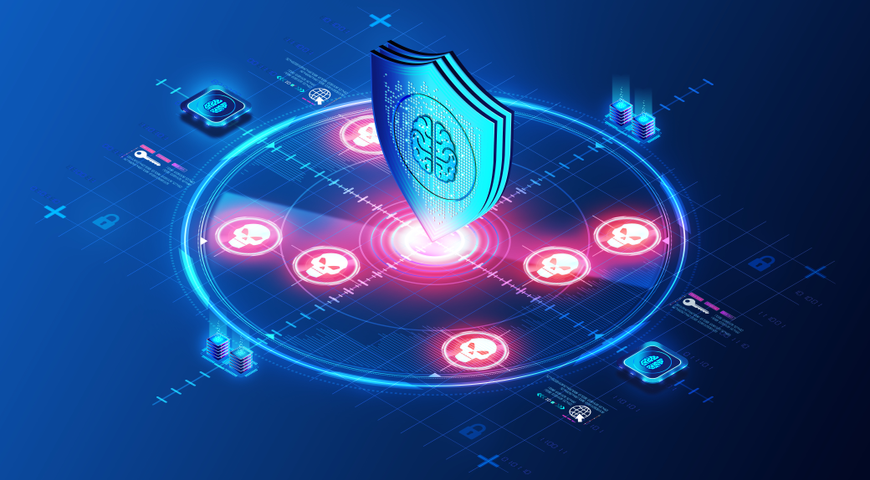Holiday headlines have dominated the news cycle over the last few weeks, but that doesn’t mean the rest of the world stopped. Tech trends are constantly evolving, cybercriminals are finding new ways to wreak havoc, and innovations are paving the way to our technological future. We searched through this week’s biggest tech stories to bring you the ones we found most interesting. Did you catch them all?
New ransomware alert: infect two others to get your data back
Want to get rid of ransomware without paying the ransom? If you get infected with the Popcorn Time malware, infecting two others will earn you the decryption key to recover access to your files.
Victims of this new variant can choose to either pay the payment via bitcoin, or infect two others, according to the Guardian. This infection is passed on by a link.
“If two or more people install this file and pay, we will decrypt your files for free,” the hackers’ message reads.
Future models of this ransomware variant will come with another twist. Like other ransomware, Popcorn Time encrypts files and provides a decryption key to those who pay the ransom. However, with this variant, the decryption key will be deleted entirely if the wrong code is entered more than four times.
This variant is still in development, but once released could be one of the most rapidly spreading malware types ever.
Officials generally recommend that victims not pay the ransom. Instead, make sure you are backing up your data so that you can restore your system to the way it was before the infection took place.
RELATED: Lessons in Beating Ransomware From a Jedi Master
Walmart is testing blockchain technology
Blockchain is making its way into your local grocery store, and it’s starting with Walmart.
According to PYMNTS, Walmart announced it is testing blockchain technology to keep track of its food products from production to the aisle. They’ll begin this process by tracking produce over the course of four months.
The first quarter of 2017 will see tracking of the production and delivery of apples and broccoli. If successful, Walmart believes it has the potential to revolutionize the supply chain entirely, starting by improving food safety for its 260 million customers.
Walmart began testing this technology in October, tracking pork products in China. From this beginning, Walmart was able to develop a database of transactions at every stage of the production and distribution process.
But while 42% of consumer goods and manufacturing businesses are projected to invest upwards of $5 million in blockchain technology in 2017, Walmart still faces challenges in trying to introduce new products into its product tracking chain.
RELATED: What is Blockchain?
Marvel & Netflix hacked
Notorious online group OurMine has hacked another Twitter account. Known for hacking high-profile social media accounts, OurMine has hacked the Twitter accounts of Netflix, Marvel, including a bevy of Marvel’s affiliate accounts that includes Thor, Captain America, Guardians of the Galaxy, The Avengers, Ant-Man, Doctor Strange, The Incredible Hulk, Black Panther and Iron Man. Mashable reports.
The group corresponded via email with Mashable, writing:
I just want to spread a message to everyone, we are a security group, not a hacking group. Most of news websites says we are a hacking group but we are not. We never change passwords, we never change emails, we never abuse, we never request money from our targets.
The group is known for testing accounts for weak passwords, and true to their word, made no changes and demanded no payment. Instead, it posted a message on the account letting the account holders know they they’d been hacked and to contact them via email.
Other notable targets hacked by this group include Mark Zuckerberg, Jack Dorsey, Evan Williams, Sundar Pichai, Jimmy Wale, and companies Buzzfeed, TechCrunch and Forbes.
Canada says internet is a basic essential
If you live in Canada, Internet is now a basic human right.
The Canadian government officially recognized the internet as a basic telecommunications service and that all citizens must have access to it, according to the Verge. The declaration is backed by a government investment package of up to $750 million which will provide Internet access to those living in more rural areas.
“The future of our economy, our prosperity and our society — indeed, the future of every citizen — requires us to set ambitious goals, and to get on with connecting all Canadians for the 21st century. These goals are ambitious. They will not be easy to achieve and they will cost money. But we have no choice,” said CRTC chair Jean-Pierre Blais.
Along with deeming internet access a basic human right, the CRTC also put in place goals for download and upload speeds—at least 50 megabits per second for a download, and 10 megabits per second for an upload. Currently, 18% of the population in Canada don’t have access to these internet speeds. By 2021, the CRTC hopes to get 90% of the population up to these internet speeds.
Signal bypasses censorship ban via Google
Signal, an app designed to send encrypted messages, is using Google to get its messages delivered.
The app routes encrypted messages through Google’s servers in order to get around government regulations, Computerworld reports. The app makers hope that using Google servers will hide traffic and keep it from being blocked.
App developer Open Whisper Systems recently found their app had been banned in countries like Egypt and the United Arab Emirates due to censorship regulations. Government blocking has been a problem for other applications as well, including VPNs, Facetime and certain voice-over IP apps.
The company decided that the solution to the censorship problems was domain fronting, in which applications circumvent government censorship by hiding their traffic inside of encrypted connections to major internet services like content delivery networks or Google’s App Engine platform. In effect, Signal traffic masquerades as ordinary Google traffic, which the Google App Engine redirects to Signal’s own domain. Would-be censors only see connections to Google.com. Effectively blocking Sensor would require a censoring government to block all Google traffic. Many cloud providers allow this kind of hidden redirection, including Google, Amazon Cloudfront, Amazon S3, Azure, CloudFlare, Fastly and Akamai.
Since being blocked, Signal released an update to circumvent the ban. Future versions will have censorship detection built in that will allow for users to switch to domain fronting if censorship regulations pose problems.
About Acronis
Acronis is a Swiss company, founded in Singapore. Celebrating two decades of innovation, Acronis has more than 1,800 employees in 45 locations. The Acronis Cyber Protect Cloud solution is available in 26 languages in over 150 countries and is used by 20,000 service providers to protect over 750,000 businesses.





